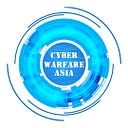Middle East countries are associating with foreign cyber firms for digital resilience
In a drive to empower themselves, Middle East countries are observed to be associating with cyber firms for countering the increasing number of cyber threats.
The COVID-19 pandemic has driven organizations to fast-track their digital transformation initiatives and embrace cloud solutions to adapt to the new normal. However, the digital shift has given rise to the proliferation of data breaches and ransomware attacks in 2020.
The ME data saw 10 million DDOS cyberattacks, targeting businesses across multiple sectors. This sharp increase in cyber incidents has prompted customer demands for a fresh approach to security.
Various such associations include Dubai-based IT system integrator association with US-based ColorTokens, a leading innovator in Zero Trust-based cyber security solutions.
Qatar also associates with Italy-based Leonardo for digital resilience. After winning the bid made Qatar more prone to cyberattacks which leads to a need for enhancing its cyber capabilities by associating with foreign cyber experts.
After taking assistance from Turkey, US, and Israeli firms, Qatar Foundation for Education, Science and Community Development, which established the QCRI, recently associated with Italy-based Leonardo. The firm will be providing a cyber range and training system to support security operations to Qatar Computing Research Institute (QCRI) for strengthening the resilience of digital infrastructure against potential cyberattacks.
Earlier also, Qatar hired Israeli-based cyber security firm “Sdema Group” for providing security at the 2022 World Cup soccer championship in Qatar for several dozen million-euro contracts.
Bahraini ruling party and Israeli Tel Aviv have expanded their bilateral cooperation since signing the normalization deal in September last year in the field of cyber and espionage cooperation.
Saudi Arabia’s Riyadh also took assistance from Israeli security companies to meet its other cyber needs. In 2012, a major operation was launched against Saudi Aramco by Iran, destroying three-quarters of the government energy giant’s computers, about 30,000 workstations, which at the time was described as history’s largest commercial cyber attack. Years later, Israeli Member of Parliament Erel Margalit revealed that Israeli cyber security companies stepped in the case to help Aramco to reverse the damage.
Israelis are also trying to expand in the field of technological partnerships, especially in cyberspace, with the Arab countries, and through this, in addition to earning huge money, and are thinking of developing espionage capabilities in the region.
The recent associations suggest that almost all countries in the region have become hyperactive in defending and advancing the cyber defense, if not with the available technology in the country then associating with foreign players within and beyond the region.
